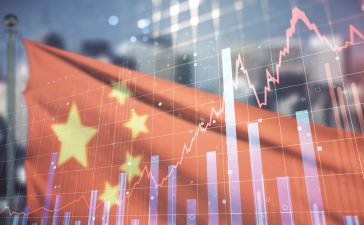Nikkei 225 fell 1.75%, KOSPI shed 1.55%, Hang Seng Index dropped 2.59%, Shanghai Composite fell 2.6% while the Shenzhen Component slid 3.09%
Asia Pacific stocks were down on Monday morning. Investors continue to calculate the impact of more aggressive interest-rate increases on the economy, while the euro gained after Emmanuel Macron’s victory in the French presidential election.
Japan’s Nikkei 225 fell 1.75% by 3 AM GMT and South Korea’s KOSPI shed 1.55%. Hong Kong’s Hang Seng dropped fell 2.59%.
China’s Shanghai Composite fell 2.6% while the Shenzhen Component slid 3.09%.
Australian and New Zealand markets are closed for a holiday.
Incumbent Macron defeated far-right rival Marine Le Pen in Sunday’s election, removing a key risk for markets. The European Central Bank (ECB) will publish its economic bulletin on Thursday, and the Bank of Japan will hand down its policy decision during the week.
U.S. yields retreated, with Treasuries paused the previous week’s rout. Risk assets remained under pressure as bond markets increased their bets on longer-term inflation.
Federal Reserve Chairman Jerome Powell also endorsed a 50 basis-point increase in May 2022 during the previous week. The ECB is also sending stronger tightening signals, which is further dampening risk appetite.
There has been little to avert the investor pessimism as inflation and interest rate expectations start to bite, Federated Hermes Ltd. head of global equities Geir Lode said in a note.
In particular due to the uncertainty of the macro environment, expectations are low with regard to forward estimates and guidance, building on lowered expectations from the previous quarter, the note added.
Chinese assets also continue to face pressure, with the yuan dropping to a one-year low on Friday. Investors are also keeping a close watch for any government policy measures, as the latest COVID-19 outbreaks and lockdowns continue to dampen investor sentiment.
However, the fundamentals of the Chinese economy remain quite solid, AllianceBernstein co-head of Asia Pacific fixed income Jenny Zeng told Bloomberg.
Zeng said: The worry is the current policy support that the government has already put in place may not be effective because of the COVID-19 policies as activities are subdued.





